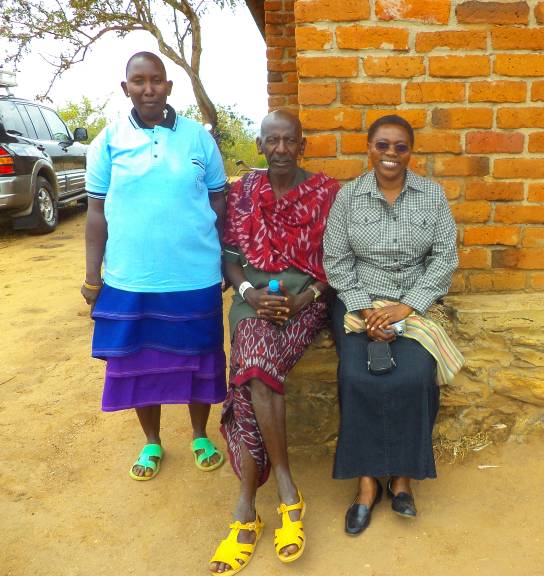(TANZANIA) Traditional Maasai women are known to take care of their families by ensuring that there is enough food, water, and shelter for everyone.

World Renew and our Mennonite Church partner held workshops in the community to help the residents start to use the resources they had to work together to meet their needs. This community of livestock herders and farmers had a reputation of rubbing each other the wrong way because the herders let their livestock trample the farmer’s crops and farmers beat and sometimes injured the livestock.
World Renew talked to the people about the benefits of working together and intensively trained them on saving money together, taking loans to start small businesses or to do more of what they already were involved in. We trained two of their community members to be trainers within the community. They started from scratch but attended all of the training sessions.
“Poverty has no race, tribe, or religion – we reach out to all with the love of Christ.”
Like many other communities I have trained, the people in Mikese nicknamed me “The Key.” In such communities, my first statement in training is that I would prove to them that they were not poor, and that I held the key that unlocks poverty. That key is training, mentoring, and encouraging them as they gradually start working together and learning new skills.
One of the eight community groups in this area just celebrated their first year of working together, and they invited me to the meeting and celebration where they “shared out”, or divided among themselves the interest they had earned from loans they gave each other through the year.
The group of 29 people shared out an equivalent of US $382; they also had an equivalent of US $500 in their group welfare account and were currently sharing US $3,125 as loans amongst the members. My question to them was: “Did we give you any money?” and their response was a big “No.” Then I asked them what we did and in a chorus they said, “The key.”
Other positive outcomes in this community include the fact that the Maasai men have allowed their wives to join the savings and loan groups and as seen in the pictures here, they responded positively to an invitation to attend the celebration. One Maasai woman bought her own goats using a group loan. Farmers and herders are working together and living together in harmony. And, in this project that’s housed by the local Mennonite Church, about half of the project participants are Muslim. When we get to the communities, our motto is this: “Poverty has no race, tribe, or religion – we reach out to all with the love of Christ.”
Continue to pray for this community as they work together to meet their physical and spiritual needs.
Margaret Njuguna
Country Director
World Renew Tanzania

